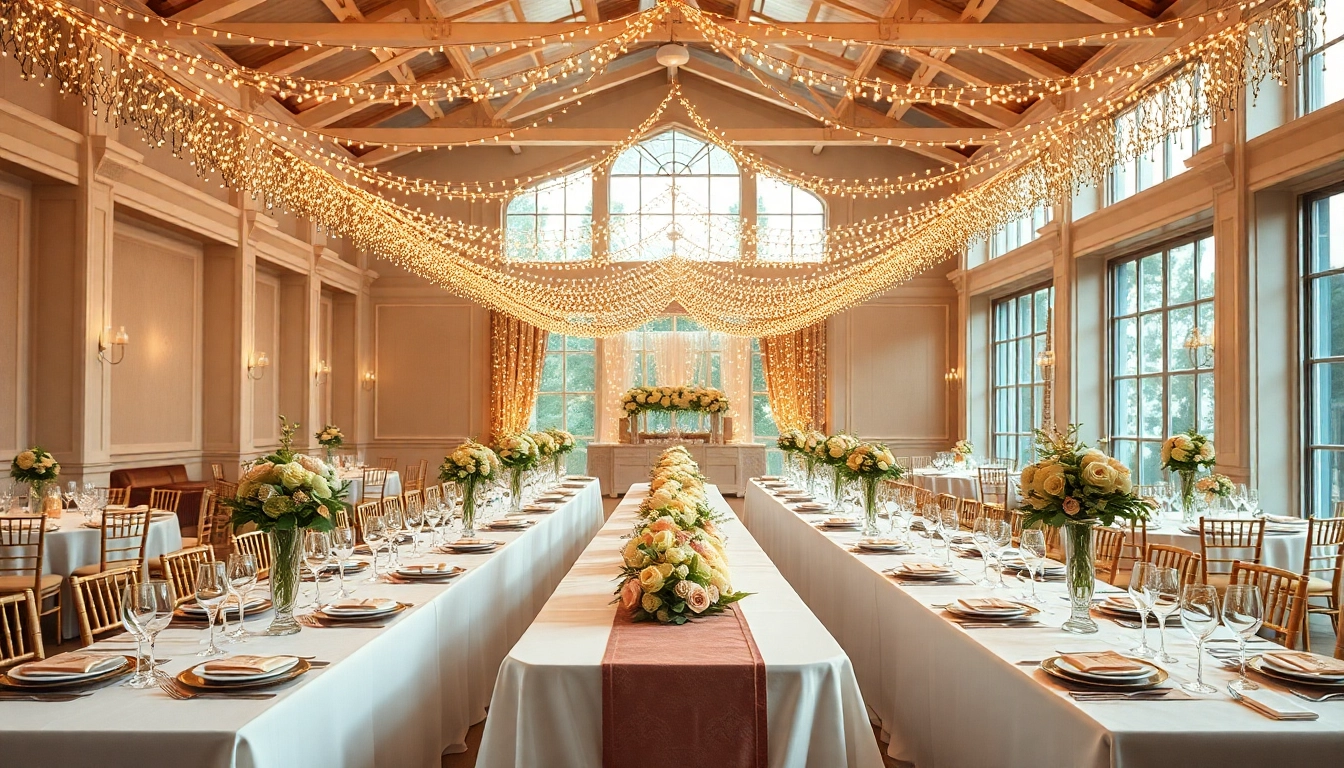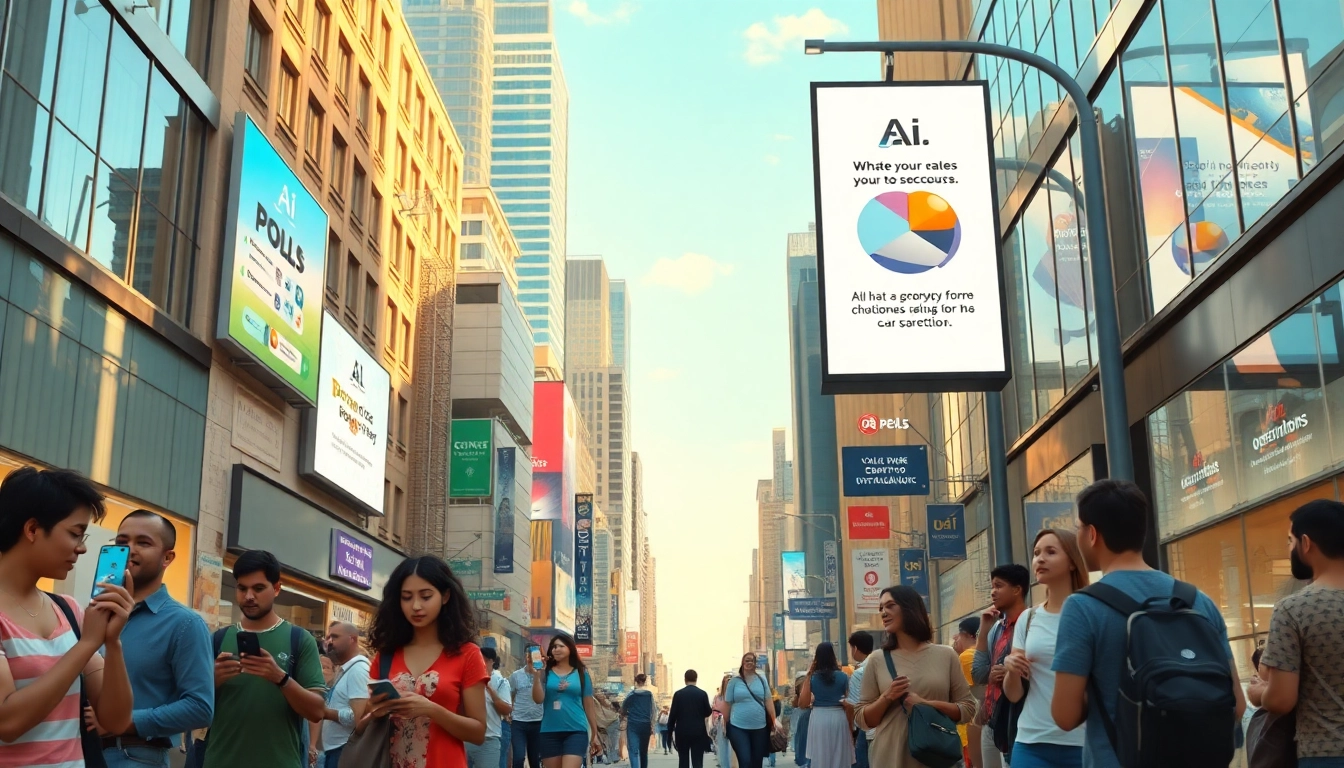Understanding the Importance of an Event Space
Choosing the right event space is a crucial step in planning any gathering, whether it’s a corporate meeting, wedding, birthday party, or community expo. The space you select not only sets the tone for your event but also influences how your guests perceive the experience you are providing. In this section, we will dive into the definition of an event space, the vital role it plays in the success of any event, and the various types of event spaces available to meet your unique needs.
Defining an Event Space and Its Key Features
Event spaces are dedicated venues equipped to host gatherings of varying sizes and types. These spaces can range from simple conference rooms in business centers to elaborate venues designed for weddings or large-scale exhibitions. Key features of an event space often include:
- Capacity: The number of guests that the venue can accommodate comfortably.
- Accessibility: The ease with which guests can access the location, often including consideration for parking, public transport, and accessibility for individuals with disabilities.
- Facilities: Necessary amenities such as restrooms, kitchen facilities, and audiovisual equipment.
- Aesthetics: The visual appeal of the space, including decor and architecture, which can enhance or detract from the event’s theme.
The Role of Event Space in Event Success
The event space plays a foundational role in the overall success of an event. A well-suited venue can affect numerous factors, including:
- Engagement: A space that facilitates interaction among guests can lead to a more engaging experience.
- Comfort: If the space is too cramped, too cold, or too noisy, guests may leave feeling dissatisfied.
- Brand Image: The choice of venue can reflect the host’s brand identity, especially for corporate events. A stylish venue can project a successful and modern image, whereas a rundown space may have the opposite effect.
Common Types of Event Spaces and Their Uses
As you begin to explore possible venues, understanding the different types of event spaces available is essential. Here are some common categories:
- Conference Centers: Ideal for business meetings and seminars, equipped with the necessary technology and accommodations for large groups.
- Banquet Halls: Designed for celebrations such as weddings and community events, often featuring catering services and decor options.
- Outdoor Spaces: Parks or gardens can be perfect for informal gatherings or seasonal events, providing a natural setting.
- Creative Studios: Unique spaces that can accommodate workshops, art exhibitions, or photo shoots, often designed to inspire creativity.
- Hotels: Many hotels provide multifunctional spaces suitable for everything from business conferences to weddings.
Factors to Consider When Choosing an Event Space
Choosing an event space requires careful consideration of multiple factors to ensure that the venue aligns with your event’s objectives. Below are critical areas to evaluate as you make your selection.
Location and Accessibility Considerations
The location of your event space plays a significant role in its success. Here are a few aspects to consider:
- Proximity to Major Routes: Ensure the venue is conveniently located for the majority of attendees to reduce travel time and discourage last-minute cancellations.
- Parking Availability: A space with ample parking or easy access to public transport will likely attract more guests.
- Safety: Especially for evening events, ensure the area is safe and well-lit.
Capacity and Layout Options for Your Event Space
Event capacity should align with the expected guest count. Overcrowding can create a negative experience, while an underused venue can imply a lack of interest. When assessing capacity, also consider:
- Layout Options: The ability to customize the setup to best suit the event’s purpose—be it theater, classroom, banquet, or cocktail style.
- Flow of Movement: Ensure that guests can move freely without bottlenecks, especially important during example events involving food and drink.
Services and Amenities to Look For
Different events may require varying services and amenities. Consider verifying the availability of certain features when touring an event space:
- AV Equipment: Ask about the availability of projectors, microphones, and sound systems.
- Internet Access: High-speed Wi-Fi is crucial for many business events.
- Catering Options: Does the venue have an in-house catering service, or can you bring in your caterer?
Designing Your Ideal Event Space
Once you have selected an event space, the next step is to design it to create the ideal atmosphere for your attendees. This requires a blend of layout, thematic elements, and technological considerations.
Layout Configurations That Enhance Guest Experience
Choosing the right layout for your event can significantly impact guest interactions. Here are some recommended configurations:
- Theater Style: Best for presentations and lectures, it maximizes seating capacity but limits interaction.
- Classroom Style: Suitable for workshops or training sessions, allows for note-taking and engagement.
- U-Shape Style: Ideal for meetings that require discussion and eye contact among participants.
- Banquet Style: Enhances social interaction around tables, perfect for celebrations.
Choosing a Theme and Decor for Your Event Space
The theme of your event can greatly enhance the ambiance and guest experience. When formulating a theme, consider:
- Brand Alignment: Ensure the theme resonates with the objectives of the event and complements your branding.
- Color Schemes: Utilize color psychology to evoke the desired emotional responses from attendees.
- Visual Aesthetics: Choose decorations that transform the space while remaining within budget, including table centerpieces, backdrop displays, and signage.
Lighting and Sound Considerations
Effective lighting and sound systems are crucial for shaping the atmosphere of your event. Consider the following:
- Lighting: Utilize natural light during the day and soft ambient lighting for evening events to create a welcoming atmosphere.
- Sound Quality: Invest in quality sound equipment and an experienced audio engineer if your event includes speeches or performances.
Marketing Your Event Space Effectively
Once your event space is ready, the next step is marketing it effectively to your target audience. A well-executed marketing strategy will ensure that your space is not only recognized but also booked consistently.
Creating Compelling Online Listings for Your Event Space
Your online listing serves as the initial touchpoint for potential clients. Here are strategies to enhance your listings:
- High-Quality Images: Use professional photographs that showcase the beauty and versatility of the venue.
- Descriptive Language: Write engaging descriptions that highlight unique features, accessibility, and amenities.
- Clear Pricing: Be transparent about rates and any potential additional fees to foster trust with potential clients.
Leveraging Social Media to Attract Events
Social media platforms are powerful tools for reaching prospective clients. Utilize these platforms by:
- Engaging Content: Share stories, testimonials, and event highlights to build a community around your venue.
- Targeted Advertising: Use platform-specific ads to reach specific demographics, such as event planners or corporate clients.
Building Partnerships with Event Planners
Establish relationships with local event planners and businesses to create a referral network. Consider:
- Networking Opportunities: Attend industry conferences and meet-ups to connect with planners who may require event spaces.
- Incentives: Offer commission-based incentives or discounts to planners who successfully book clients into your venue.
Maximizing Client Satisfaction in Your Event Space
Ultimately, client satisfaction is key to the success and longevity of your event space. Achieving high levels of client satisfaction can translate into repeat bookings and positive recommendations.
Collecting Feedback and Improving Services
Requesting feedback is essential for continuous improvement. Here are methods to engage clients:
- Post-Event Surveys: Utilize digital surveys to capture client feedback shortly after the event.
- In-Person Follow-Ups: Personal follow-ups can strengthen relationships and reveal insights that surveys may miss.
Ensuring a Seamless Experience for Event Hosts
Providing excellent customer service during the event is critical. Consider these actions to ensure a seamless experience:
- Dedicated Staff: Assign an event coordinator to assist hosts throughout the event.
- Clear Communication: Maintain open lines of communication pre-event, during setup, and throughout the event.
Case Studies of Successful Event Space Transformations
Analyzing successful transformations can provide valuable insights for your own event space. Consider the following success stories:
- A Corporate Renovation: A once-sterile conference room redesigned with modern decor and technology became a sought-after meeting space, leading to a 40% increase in bookings.
- A Community Center Makeover: The transformation of a community hall into an upscale, multipurpose venue resulted in a spike in both social events and local partnerships.
In conclusion, selecting, designing, and promoting an event space requires meticulous planning and execution. By understanding the nuances of venue selection, offering a tailored experience, and employing effective marketing strategies, you can create memorable gatherings that resonate with attendees. With the right approach, your event space can become a key player in the events industry.



